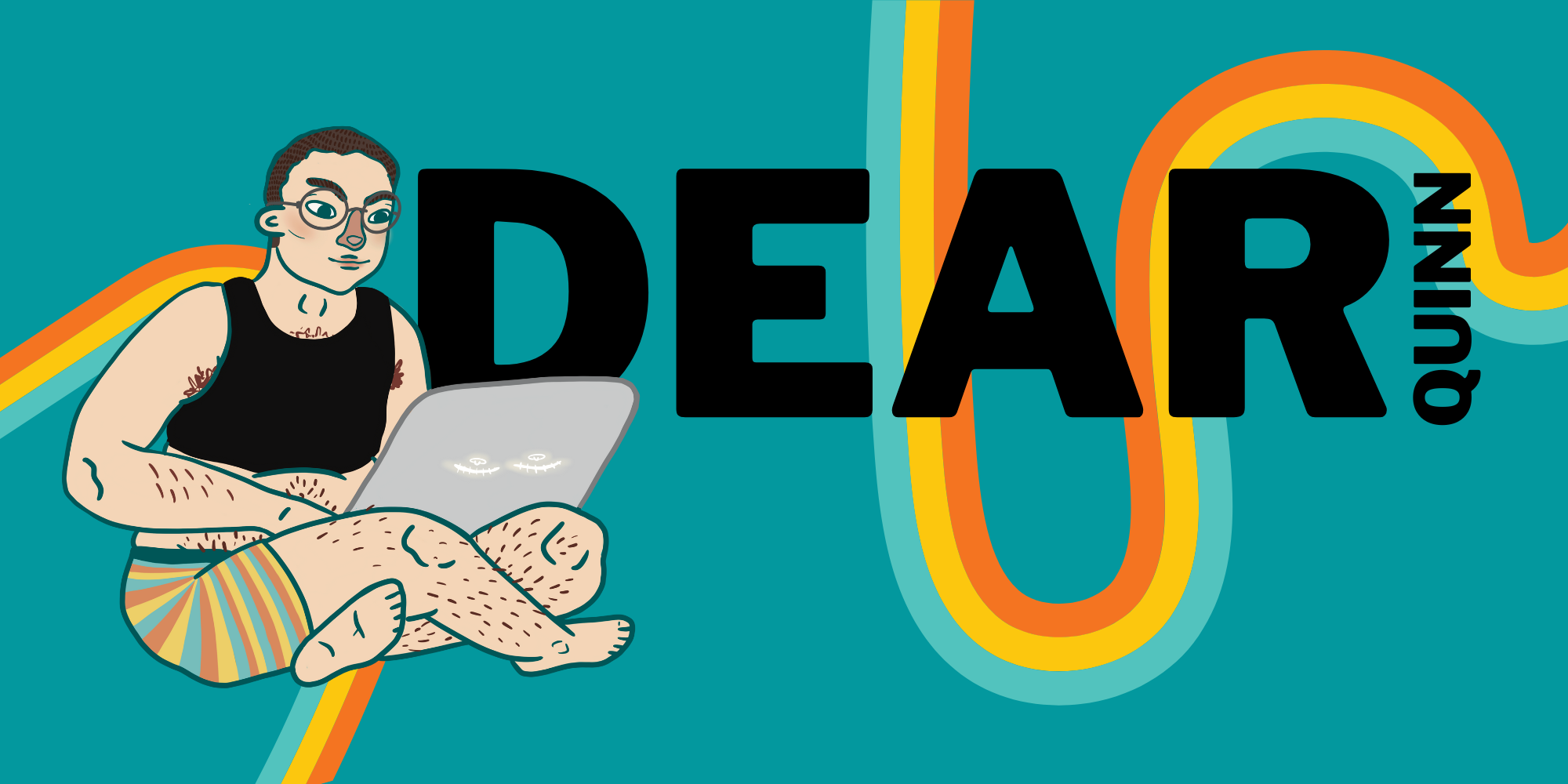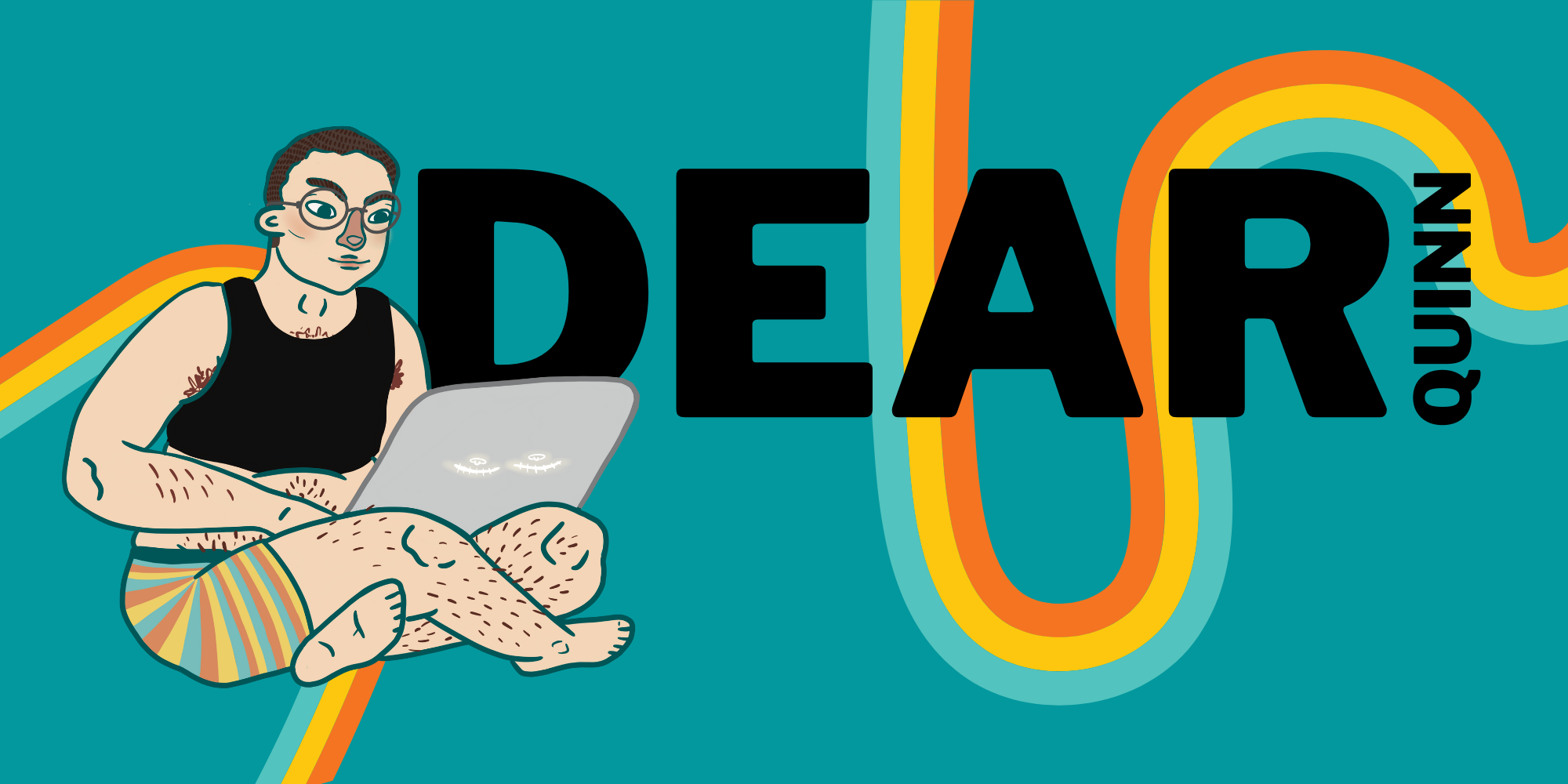Dear Quinn: why is the term ‘identifies as’ a problem?
I do not ‘identify as’ a man; I am a man. Those two little words, as innocent as they may seem, can sometimes feel like an attack on my masculinity.

Today marks the launch of a new segment of Genderbent! Dear Quinn aims to answer the questions cis people aren’t sure if they’re “allowed” to ask. Trans people shouldn’t have to constantly answer questions about or justify their gender to cis people, and not every trans person wants to educate about transness. At the same time, I think it's important that education about trans people and issues should come from trans, non-binary and intersex people themselves. So rather than asking that one trans person you know, I’m explicitly inviting you to ask me your questions about gender and transness - however rude you're worried they are.
Before we dive in, I want to remind you that I am one trans person, and am offering advice based on my experiences and to the best of my knowledge. Even within the trans community, opinions differ on the “right” way to say and do things, and I’m absolutely not claiming to offer definitive or “perfect” advice or answers.

Dear Quinn: why is the term 'identifies as' a problem?
This came up when a friend and I were discussing [REDACTED]’s new marketing strategy. One of the YouTube videos we were dissecting (read: critiquing) had a title like “We asked women about… Body Positivity!” The video’s description read “We asked women (those who currently or have previously identified as women) about… Body Positivity!” and the same language was used at the start of the video.
Even setting aside “previously identified as women” (because I know that’s definitely not language I’d be comfortable with anyone using about me) the phrasing didn’t sit right with me. It might be what I’d have said myself five years ago, wanting to respect trans people’s gender while not being sure about the right language to use, but today it bothers me. When I expressed my frustration with the wording, my friend asked me why the term ‘identifies as’ is a problem. This is my answer:
I do not ‘identify as’ a man; I am a man. Those two little words, as innocent as they may seem, can sometimes feel like an attack on my masculinity. (Some people might say I’m too sensitive, but honestly I think we need more sensitive men - and those people probably aren’t fighting every day to make the world see them as the gender they are.)
Saying that trans people ‘identify as’ their gender gives the impression their gender is not real. To me, it’s similar - though maybe less overtly transphobic - to saying a trans person ‘says they are’ or ‘claims to be’ their gender. When you say that a trans person ‘identifies as’ their gender, it feels like you don’t believe them about who they are. That you think, no matter what they say, that it isn’t their “real” gender. That you think gender is a choice.
I’m not a man because I say I am one; I’m a man because that is an inherent part of who I am. If I wanted to (which, to be clear, I don’t) I could ‘identify as’ a cis woman and move through the world presenting as one. It wouldn’t change the fact I am a man. I was a man when I got my first period. I was a man before I started testosterone. Neither my tits nor the F on my passport makes me any less of a man. I have always and will always be a man.
I’m aware I’m talking about gender in a very absolutist way here, which might not account for the fluidity a lot of trans and non-binary people’s gender encompasses. I want to be clear that I am talking about my gender. Not every trans person steps into their gender and retroactively applies it to their entire life. Even though no one knew it until I was 21, I have always been a guy. I don’t even say I used to ‘identify as’ a woman: I say that I used to be perceived as a woman. This is my way of honouring my gender and who I am.
Other trans people’s gender might change throughout their life as they change and their understanding of their gender grows. They might use different language to talk about their experiences, choosing to talk about “when they were a girl” while I would talk about “when I was perceived as a girl”. Neither of us is wrong, but that is a decision for trans people to make about their own gender, not for cis people to make.
If it’s something you wouldn’t say about a cis person, you probably shouldn’t say it about a trans person either. We don’t talk about how Karen Gillan, who identifies as a woman, played writer-blocked author Jane Lockhart in indie romcom Not Another Happy Ending so why do we have to specify that Elliot Page, who identifies as a man, plays Viktor - the hottest of the Hargreeves siblings - in Netflix’s The Umbrella Umbrella Academy. The ‘identifies as’ takes away from the legitimacy of Page’s gender in a way that Gillan’s would never be questioned.*
In [REDACTED]’s attempt to show they know that trans women are women, their language - in my opinion - actually othered trans women. Trans women don’t ‘identify as’ women, they are women. The ‘identifies as’ is redundant. (I’d perhaps be more generous to [REDACTED] if their entire YouTube page hadn’t recently flooded with these ‘We asked women about…’ and ‘We asked men about…’ videos. Where are the non-binary people they claim to be so inclusive of?)
I’m not saying that people who use the term ‘identify as’ are terrible people. I probably said it myself five years ago, wanting to be respectful of trans people’s gender without understanding the most inclusive way to phrase things. I also would have talked about “preferred pronouns” - something I actively encourage cis folks not to say nowadays, because it implies the pronouns I use are equivalent to my preference of chocolate cake over Victorian sponge.
In a world where trans are fighting - and dying - every day to be recognised as who we really are, the language cis people use to talk about us matters. Don’t say that trans people ‘identify as’ their gender. It reinforces the transphobic idea that trans people are not who we say we are.
*I specifically chose a white cis woman for this example, because white supremacy has and does deny and question the womanhood of women of colour - especially Black women - as a means of denying them their humanity.

